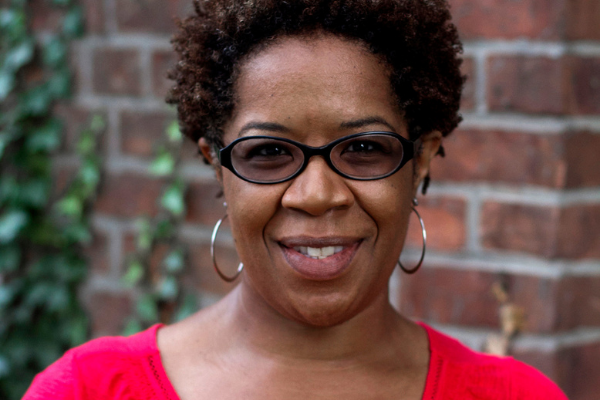Community project fuses storytelling and research for HIV advocacy


For Lori Chambers, storytelling is powerful.
As a community-based researcher with more than two decades in the field as an HIV advocate, Chambers utilizes participatory, arts-based approaches to humanize and share her research on HIV awareness and the experiences of women who work in the sector – the basis of her doctoral work.
After she completed her doctoral research, Chambers wanted to continue to tell these stories. And so did the community she worked with.
“Witnessing the women in the field, especially African immigrant women and other women of African descent, I marveled at how they saw this work as both a love and labour of caring,” says Chambers, a postdoctoral fellow at the Factor-Inwentash Faculty of Social Work at the University of Toronto.
“I thought, ‘how could I keep this story going on?’ And it was actually the community that encouraged me to keep this going.”
In 2018, Chambers launched Because She Cares, a knowledge mobilization project that uses the arts, film and poetic inquiry to amplify the stories of African, Caribbean and Black (ACB) women living with HIV. The inspiration for the initiative stems from Chambers’ doctoral research about how HIV service work could be considered a form of caring labour.
With the help of the Black Research Network’s IGNITE grant, Chambers and a group of six spoken word performers will present and perform the stories from the Because She Cares project at the International AIDS Conference in Quebec this summer. The world’s largest conference on HIV and AIDS brings scientists, activists and policy makers together to share their work.
The upcoming performance is one of several arts projects Chambers has manifested through the initiative. Since its inception, Because She Cares has brought together ACB community members that have worked in Canadian AIDS service organizations (ASOs) for various projects, including a spoken word play and poetry anthology.
“I think that storytelling is a home-knowing practice that a lot of us from African-descendant cultures learn in terms of our social world, our history and the things are salient to us,” Chambers says.
In February, Because She Cares launched a spoken word film series to share the stories of African immigrant women living with HIV who work for AIDS service and allied organizations (AASOs) in Ontario. Produced in partnership with the African in Partnership Against AIDS (APAA) and Urban Market Campaign, the film is part of Chambers’ postdoctoral research, which explores how spoken word film can mobilize research about HIV.
The series, made of 12 short films, illustrated how HIV service work is viewed as a form of (un)caring work for African immigrant women living with HIV. Aspects of (un)caring work conveyed in the films include working poverty, tokenism in the workplace, navigating professional boundaries and managing HIV status disclosure. The series also highlighted how cultural ways of working and advocating are silenced in Canada.
And while many of the actors were not professional spoken word artists, Chambers says that their performance was anything short of powerful.
“We were moved by it. Many of us cried because of the power of their voices, and I think partially that came from them understanding the experiences people worked in the sector,” Chambers says.
“It really shifted how people heard the message, and it made me realize that visual artistry as well as spoken word artistry are very powerful when put together.”
For Chambers, utilizing everything from poetry to film and performance is a way to honour storytelling as a cultural practice and authentically share the stories of ACB women. She also notes that incorporating various ways of knowing and art-based methodologies in academia is key to decolonizing social work research.
“The separation between storytelling practices, knowledge mobilization and the dissemination of research is a false one,” Chambers says.”
“We need more storytelling practices within research dissemination, particularly by those that are grounded in the home-knowing practices of people who we do research with and for.”










